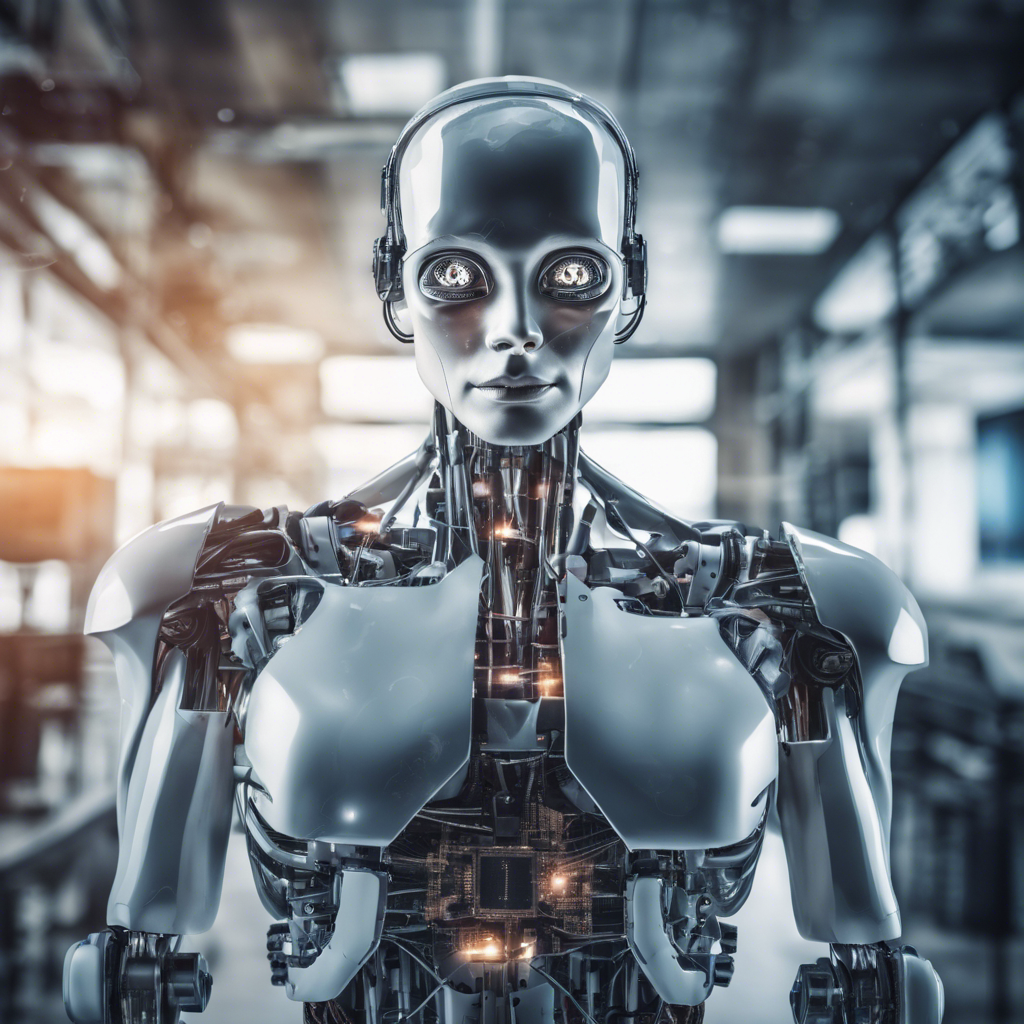The Rise of Artificial Intelligence: Revolutionizing Industries and Transforming Lives

How AI is Shaping the Future of Technology and Society
Artificial Intelligence (AI) has become one of the most transformative technologies of our time. From self-driving cars to voice assistants, AI is revolutionizing industries and transforming the way we live. As the capabilities of AI continue to advance, it is crucial to understand its impact on various sectors and its potential to shape the future. In this article, we will explore the latest developments in AI and delve into its implications for technology and society.
AI in Healthcare: Improving Diagnosis and Treatment
AI has made significant strides in the healthcare industry, offering new possibilities for diagnosis and treatment. Machine learning algorithms can analyze vast amounts of medical data to identify patterns and predict disease outcomes. This has led to more accurate diagnoses and personalized treatment plans. For example, AI-powered systems can detect early signs of diseases like cancer, enabling timely intervention and potentially saving lives. Moreover, robotic surgical assistants are enhancing precision and reducing the risk of human error in complex surgical procedures.
AI in Finance: Enhancing Efficiency and Risk Management
The financial sector is another area where AI is making a profound impact. AI-powered algorithms can analyze large volumes of financial data in real-time, enabling faster and more accurate predictions of market trends. This has revolutionized trading strategies and asset management. Additionally, AI algorithms are being used to detect fraudulent activities and assess creditworthiness, improving risk management and enhancing security in the financial ecosystem.
AI in Transportation: Paving the Way for Autonomous Vehicles
Self-driving cars have garnered significant attention in recent years, and AI plays a crucial role in their development. AI algorithms enable vehicles to perceive their surroundings, make decisions, and navigate complex road conditions. This technology has the potential to revolutionize transportation by reducing accidents, improving traffic flow, and increasing accessibility for individuals with mobility challenges. However, challenges remain, including ethical considerations and ensuring the safety and reliability of autonomous systems.
AI in Education: Personalized Learning and Intelligent Tutoring
Education is another domain where AI is transforming the learning experience. Intelligent tutoring systems can adapt to individual student needs, providing personalized learning pathways and feedback. AI algorithms can analyze student performance data to identify areas of improvement and suggest tailored resources. Furthermore, AI-powered chatbots are being used to enhance administrative tasks, such as answering student queries and providing guidance, freeing up educators’ time for more meaningful interactions.
AI in Ethics and Bias: Addressing Challenges and Ensuring Fairness
As AI becomes increasingly integrated into our lives, ethical considerations and biases come to the forefront. AI algorithms are only as good as the data they are trained on, and if the data is biased, the algorithms can perpetuate and amplify those biases. It is crucial to address these challenges and ensure fairness and transparency in AI systems. Efforts are underway to develop ethical guidelines and regulations to govern the use of AI, promoting accountability and responsible AI development.
Conclusion:
Artificial Intelligence is rapidly transforming industries and reshaping society. From healthcare to finance, transportation to education, AI is revolutionizing the way we live and work. With its potential to enhance efficiency, improve decision-making, and solve complex problems, AI holds immense promise. However, it is essential to navigate the ethical and societal implications of AI, ensuring fairness, transparency, and responsible development. As we embrace the power of AI, it is crucial to strike a balance between innovation and the well-being of humanity. The future of AI is bright, and its impact on our lives will continue to unfold, shaping a new era of technology and society.

